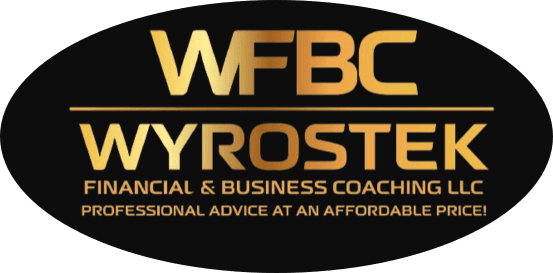How Group Coaching Improves Workplace Team Dynamics

Posted on September 10, 2024
When was the last time your team truly communicated and collaborated without the barriers of miscommunication or differing goals?
The truth is, many teams struggle with maintaining efficient and productive working relationships. This can lead to a decrease in overall team performance and can even create a toxic work environment.
In the following sections, we will delve deeper into the key benefits of group coaching and provide practical tips for implementing it in your workplace.
By the end of this article, you will have a better understanding of how group coaching can improve team dynamics and how you can apply it to your own team.
The Essence of Group Coaching in the Workplace
At its core, group coaching in the workplace is a collaborative process where a group of employees, facilitated by a coach, work together to enhance their skills, improve communication, and achieve collective goals.
Unlike individual coaching, which focuses on personal development through one-on-one sessions, group coaching leverages the dynamics of the team to foster a supportive learning environment. This collective approach not only helps in addressing individual challenges but also creates a shared sense of purpose and community within the team. In many cases, team members learn as much from each other as they do from the coach, making the experience richer and more impactful.
One of the key distinctions when it comes to team coaching in the workplace is its strategic focus. While individual coaching hones in on personal performance and goals, team coaching aims to align the group's efforts with the organization's objectives. It’s about promoting synergy and ensuring that every member’s contributions are in harmony with the team's overall mission.
Techniques for Team Communication and Collaboration

The success of any team depends heavily on effective communication and collaboration. Group coaching techniques can greatly contribute to enhancing these essential skills. By promoting trust, active listening, structured feedback, role-playing, and visioning exercises, team members can improve their understanding of each other and work together towards common goals.
1. Trust-building exercises
To foster a collaborative environment, it is crucial to build trust among team members. One effective way to achieve this is through structured exercises and activities. These exercises can include sharing personal stories or discussing past team successes and failures.
By breaking down barriers and encouraging openness, trust-building exercises promote a deeper understanding of each other's strengths and weaknesses. This understanding is essential for effective collaboration, as team members who feel safe to express themselves are more likely to share ideas and work together effectively.
2. Active listening sessions
Active listening is a critical skill for effective communication. In group coaching meetings, coaches can orchestrate active listening sessions where team members are trained to listen without interrupting, acknowledge the speaker's points, and ask clarifying questions.
By understanding diverse perspectives and appreciating each other's input, team communication is vastly improved. Active listening can also be particularly beneficial in conflict resolution, as it allows team members to empathize with different viewpoints and find common ground. These skills carry over to everyday interactions, creating a more cohesive and communicative team.
3. Structured feedback sessions
Another valuable group coaching technique is structured feedback sessions. These sessions encourage team members to provide constructive feedback in a positive and supportive manner.
The coach plays a vital role in moderating these discussions, ensuring that feedback is focused on improvement rather than criticism. Regularly practicing structured feedback helps to develop a culture of continuous improvement where team members are not afraid to speak up about issues or suggest improvements. This environment significantly enhances team collaboration by making every member feel valued and heard.
4. Role-playing exercises
Role-playing exercises can also be an effective group coaching technique to improve team communication and collaboration. In these exercises, team members take on different roles and scenarios to practice handling various workplace situations.
By experiencing challenges from different angles and building empathy, team members can experiment with different communication strategies in a low-risk setting. The skills honed during role-playing can then be applied in real-life situations, contributing to a more harmonious and efficient work environment.
5. Visioning exercises
Lastly, visioning exercises in group coaching sessions can align team efforts with organizational goals. By collectively defining their vision and setting shared objectives, team members develop a sense of ownership and accountability. This, in turn, leads to improved collaboration, as team members are more likely to support each other and work towards common goals.
Visioning exercises also help to clarify roles and improve overall productivity. By aligning individual contributions with team objectives, group coaching ensures that the team operates as a well-oiled machine, delivering results that align with the grander organizational vision.
Building High-Performance Teams through Coaching

Identifying and developing leadership within a team is crucial for long-term success. Group coaching creates a space where potential leaders can naturally step up and demonstrate their abilities. Rather than relying on formal programs, group coaching encourages leadership growth through hands-on experiences in real-time situations.
1. Identifying and Nurturing Leadership Talent
Within the group coaching setting, emerging leaders have the opportunity to step up and demonstrate their capabilities. These sessions can be structured to identify and nurture leadership talent organically, without the need for a formal leadership development program.
Coaches can facilitate activities that require team members to take on different leadership roles, providing practical experience for potential leaders. This real-world application of leadership skills within a safe environment is invaluable, and team dynamics greatly benefit as future leaders learn to motivate, guide, and support their colleagues.
2. Promoting a Culture of Accountability and Responsibility
Effective high-performance team coaching not only refines leadership abilities but also fosters a culture of accountability and responsibility. Group coaching allows individuals to become more aware of their role within the team and the larger organizational context.
This heightened awareness encourages a sense of personal accountability for the team's success. Coaches can implement goal-setting activities, where each team member defines clear, measurable objectives aligned with team and organizational goals. Regularly revisiting these objectives in coaching sessions ensures that team members stay accountable to their commitments, thereby enhancing the team’s output and cohesion.
3. Fostering Diverse Skill Development
Group coaching facilitates diverse skill development, essential for effective teamwork. Teams composed of individuals with varying strengths become well-rounded through collective learning experiences. A coach may organize workshops on collaborative problem-solving or innovative thinking, enabling team members to learn from each other’s expertise and apply new skills to their collaborative efforts.
Structured skill-sharing sessions allow employees to teach one another, reinforcing their own knowledge while contributing to a more competent and confident team. This multifaceted development transforms a team into a high-performance unit capable of tackling complex challenges with agility and ingenuity.
4. Emphasizing Emotional Intelligence
Leadership development through group coaching also emphasizes emotional intelligence, a crucial element for high-performance teams. Coaches can implement exercises aimed at improving emotional awareness, empathy, and interpersonal relations.
This is particularly important in diverse teams where misunderstandings can arise from differences in communication styles or cultural backgrounds. Emotional intelligence activities help team members navigate these challenges more skillfully. As a result, leaders who emerge from such coaching are not only technically adept but also excel in managing relationships. This balance of skills is indispensable for leading a cohesive, motivated, and high-performing team.
Solving Problems and Resolving Conflicts Effectively

Effective problem-solving techniques are essential for the success of group coaching in enhancing workplace dynamics. Through structured methods like brainstorming, root cause analysis, and the 5 Whys technique, team members can systematically dissect and understand issues.
By coming together and examining problems from multiple perspectives, facilitated by an experienced coach, teams can achieve more comprehensive solutions. This collaborative problem-solving approach fosters a culture of teamwork and continuous improvement.
Problem-Solving Techniques
One key aspect of group coaching is equipping teams with effective problem-solving techniques. By honing these methods, teams can not only tackle immediate challenges but also navigate future uncertainties.
- Brainstorming: This is a technique where team members come together to generate ideas and solutions in a non-judgmental and open-minded environment. By encouraging creativity and diverse perspectives, brainstorming can lead to innovative solutions.
- Root Cause Analysis: This method involves identifying the underlying cause of a problem, rather than just treating the symptoms. By addressing the root cause, teams can develop more effective and long-term solutions.
- 5 Whys Technique: This approach involves asking "why" repeatedly to uncover the root cause of a problem. By digging deeper and asking probing questions, teams can gain a better understanding of the issue.
Conflict Resolution Skills
Conflicts in the workplace are inevitable, but unresolved disputes can severely impact team morale and productivity. Group coaching can equip teams with conflict resolution skills to manage conflicts constructively.
- Role-playing: In group coaching sessions, team members can practice mediation and negotiation skills through role-playing scenarios. By doing so, they learn to approach conflicts with empathy and assertiveness, striving for win-win outcomes.
- TKI: Coaches can introduce the TKI to help team members understand their conflict-handling styles and how to adapt them to various situations. This preemptive training enables teams to manage conflicts constructively and maintain a harmonious work environment.
Employee Engagement Ideas
Another significant benefit of group coaching is the introduction of employee engagement ideas that promote active participation and motivation. These activities are designed not only to enhance team cohesion but also to build a sense of belonging and mutual respect among team members.
- Team-building Exercises: Coaches can incorporate team-building exercises to promote team cohesion and trust. These activities can also help team members develop a genuine interest in each other's success.
- Collaborative Projects: By working together on projects, teams can enhance their communication and collaboration skills. This can also foster a sense of teamwork and mutual support.
- Peer Recognition Programs: Coaches can introduce peer recognition programs to encourage team members to appreciate and support each other's efforts. This can contribute to a more positive and inclusive team culture.
Creating a Harmonious Team Environment
A harmonious and highly functional team environment is another critical outcome of group coaching. Coaches play a pivotal role in cultivating this through intentional actions and continuous learning.
- Open and Honest Communication: Coaches can facilitate open and honest communication channels within the team. This ongoing dialogue fosters trust and transparency, essential elements for a cohesive team.
- Feedback Grid: By using tools like the Feedback Grid, team members can share their thoughts and provide constructive feedback to each other. This can prevent resentment from building up and ensure that the team remains focused and united in their goals.
Ultimately, the success of group coaching in enhancing workplace team dynamics lies in its ability to blend effective problem-solving techniques with conflict resolution skills and innovative employee engagement ideas. When these elements are seamlessly integrated into the coaching process, teams become more resilient, adaptable, and efficient.
Related - The Benefits of Life Coaching for Personal Transformation
Wrapping Up
Group coaching offers a meaningful way to strengthen team collaboration, communication, and productivity. It helps foster open dialogue, enabling team members to connect more effectively, share insights, and work toward common goals. When coaching sessions are structured to address real challenges, teams learn how to handle conflicts, support one another, and achieve stronger results.
This process also fosters accountability. Team members become more aware of how their individual contributions impact the group's overall success. With clear goals and shared responsibilities, each person is motivated to stay on track, and the regular check-ins ensure progress is made. This shared accountability drives commitment and long-term improvement.
Additionally, group coaching helps develop a wide range of skills by encouraging members to share their knowledge and strengths. As they learn from each other, they build a more versatile and adaptable team. This exchange of ideas and problem-solving techniques equips the group to face challenges more effectively and develop new, innovative approaches.
Emotional intelligence is another key benefit of group coaching. By improving how team members understand and manage their emotions, relationships within the group become stronger. This emotional awareness reduces misunderstandings, increases empathy, and fosters a supportive environment where everyone can thrive.
Presenting Wyrostek Financial and Business Coaching
At Wyrostek Financial and Business Coaching, LLC, we specialize in creating meaningful group coaching experiences that equip teams with practical tools to improve their dynamics. Our sessions encourage open communication and problem-solving, helping your team become more aligned and efficient.
Transform your workplace dynamics through our group coaching sessions, designed to foster collaboration, communication, and shared success. By bringing your team together in a supportive environment, you’ll enhance synergy, boost morale, and encourage innovative problem-solving. Group coaching not only improves relationships within your team but also helps each member grow individually, leading to a stronger, more effective workforce.
Ready to strengthen your team? Enroll your team today and discover the powerful impact of group coaching on workplace dynamics! If you’re ready to build a stronger, more unified team, call us at (352) 480-0780 to start the journey today!
Send a Message
Reach out to me effortlessly through the contact form. I'm eager to hear from you and ready to assist with any inquiries or opportunities for collaboration. Let's start a conversation that leads to mutual success and growth.
